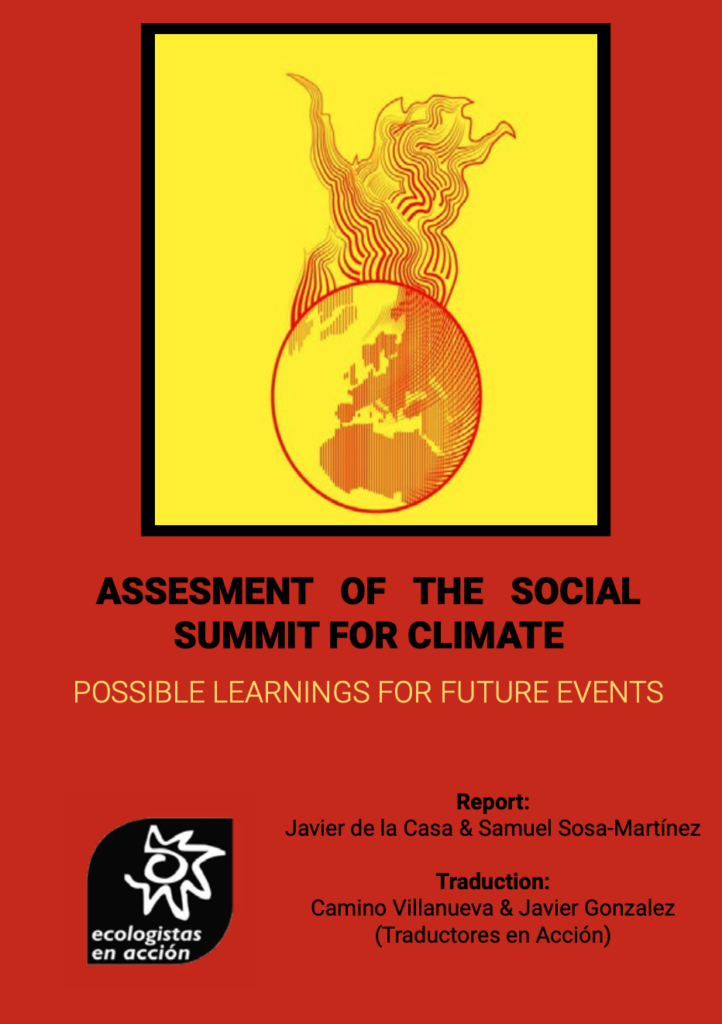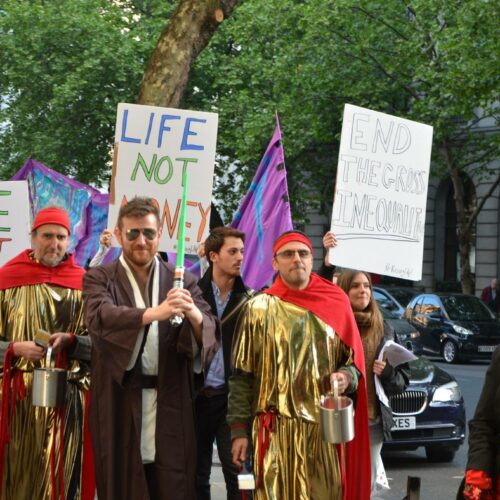The 2019 United Nations Climate Change Conference, also known as COP25, was the 25th one since they started, and it was held in Madrid, Spain, from 2 to 13 December 2019 under the presidency of the Chilean government.

The Chilean government, unilaterally cancelled the COP25 just a month before its scheduled date, claiming that the anti-government revolts of the Chilean civil society under the slogan “Chile Awakened” (Chile Despertó), would make the event hosting challenging. This could have also easily been an attempt at keeping media scrutiny and global public attention at bay, over the repression and violation of human rights, by the Chilean government. It also offered a golden opportunity for the Spanish government to take over, which was keen to be perceived as a frontrunner of the ecological transition. Thus, the COP25 was to be held in Madrid.
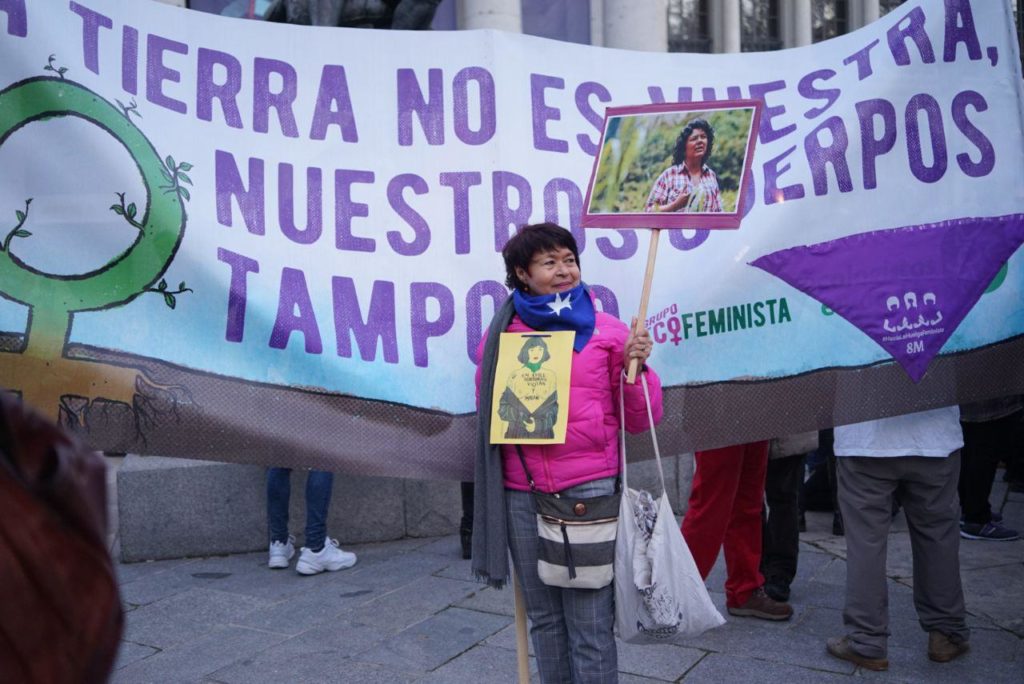
This marked the third consecutive year a COP was held in a European country, contrary to the criterion of rotation. It moreover represented a significant blow to Chilean civil society, which had spent the months leading up to the conference organising events parallel to the COP: People’s Summit (Cumbre de los Pueblos), Social Summit for Climate Action (Cumbre Social por la Acción Climática), Indigenous Minga (Minga Indígena), the World Youth Conference, etc. Several of the initiatives held their meetings anyway but failed to draw the attention and build the political momentum that the COP25 could have provided.
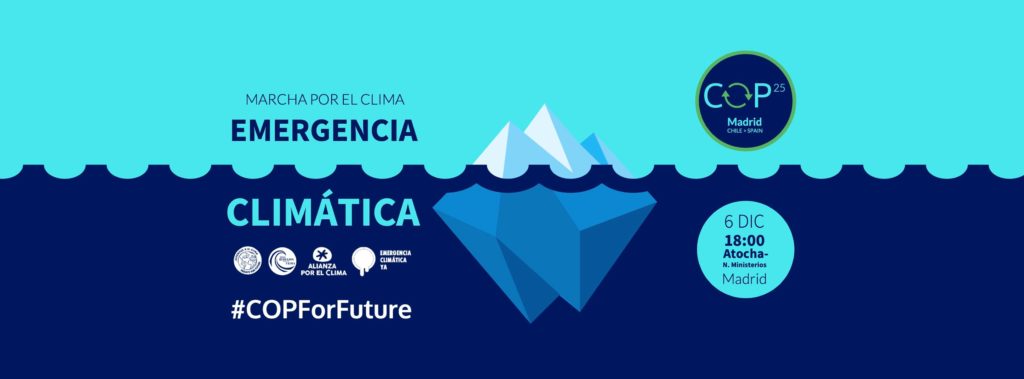
The social forums and summits, usually a grassroots response to the big, flashy and usually utterly toothless global events, are usually planned many months in advance. However, the sudden turn of events left a very short time span of less than 4 weeks both for the COP25 to be organised in Madrid and for civil society to organise its response. After all, the economic capacity, the resources and infrastructures of a government to adapt to unforeseen changes of this nature are considerable; whereas for a social network mainly based around volunteer work and activism, it becomes an insane challenge. So all things considered, the Social Summit for Climate Action (SSC), held in parallel to COP25, may be a milestone in the long history of social fora.
Ecologistas en Acción were a coordinating partner of both the demo on December 6th, and the SSC. After a few months, they finished a thorough assessment process. The purpose of this evaluation is to serve as strategic support for the organisation of similar mobilisations & grassroots events in the future. For this reason it includes a detailed description of the activities that were carried out for the Social Summit for Climate and the proposed organizational model to carry it out.
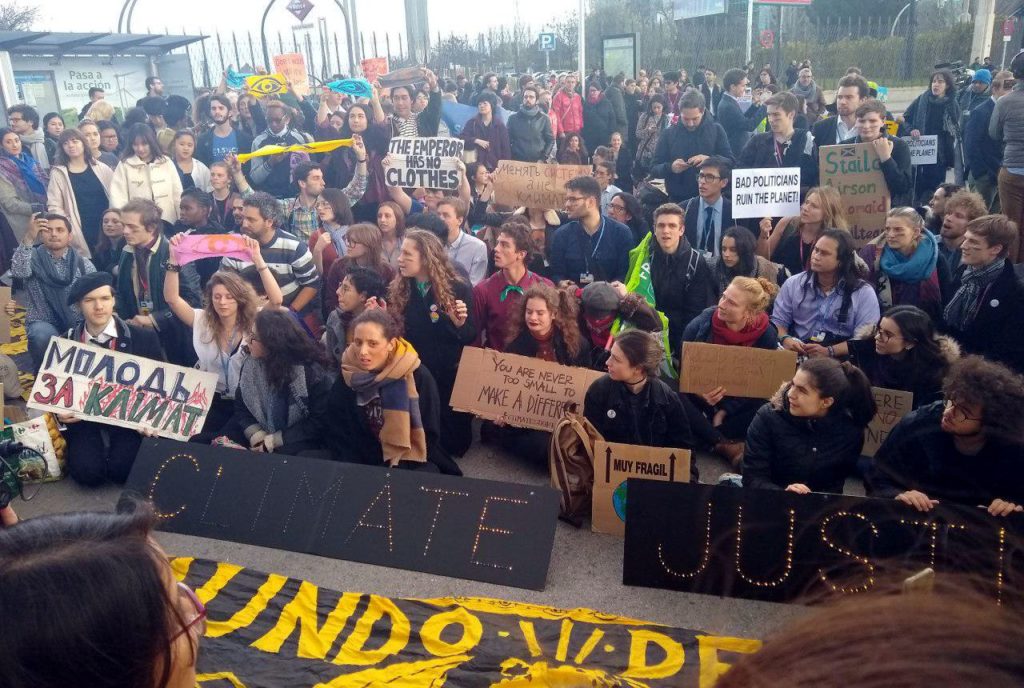
In addition, the report contains the results of a survey carried out on partner-groups and participants. This survey has its limitations, but offers interesting results for planning similar events. This document is expected to serve as a tool to generate spaces for activism that know how to listen, learn from their past mistakes and acknowledges their strengths (which is in a nutshell what our #GoWithTheFlaw storytelling project is all about, evolving and growing from our mistakes and missteps).
We have brought our message of environmental protection and social justice to this process for years. We have shown our solutions and we now wonder: are they really listening to us? – Taily Terena, Continental Network of Indigenous Women of the Americas (ECMIA) and the Terena nation of Brazil
The point of this article is to extract some key elements from this report and offer insights into how one prepares for feedback and evaluation as well as how one processes it well once they have it.
1. Get feedback on your event as soon as possible.
The evaluation was carried out a month after the SSC. Due to accumulated exhaustion after the meeting, the Christmas holidays and the fact that everything was organised last minute due to the COP being diverted to Madrid meant that the survey was sent out later than it should have been. A total of 102 people gave their views individually and only 34 of the almost 1,000 groups that joined the appeal participated – meaning that the results are not extremely representative. The earlier you develop surveys, feedback forms and an evaluation plan in general the higher the percentage of engagement.
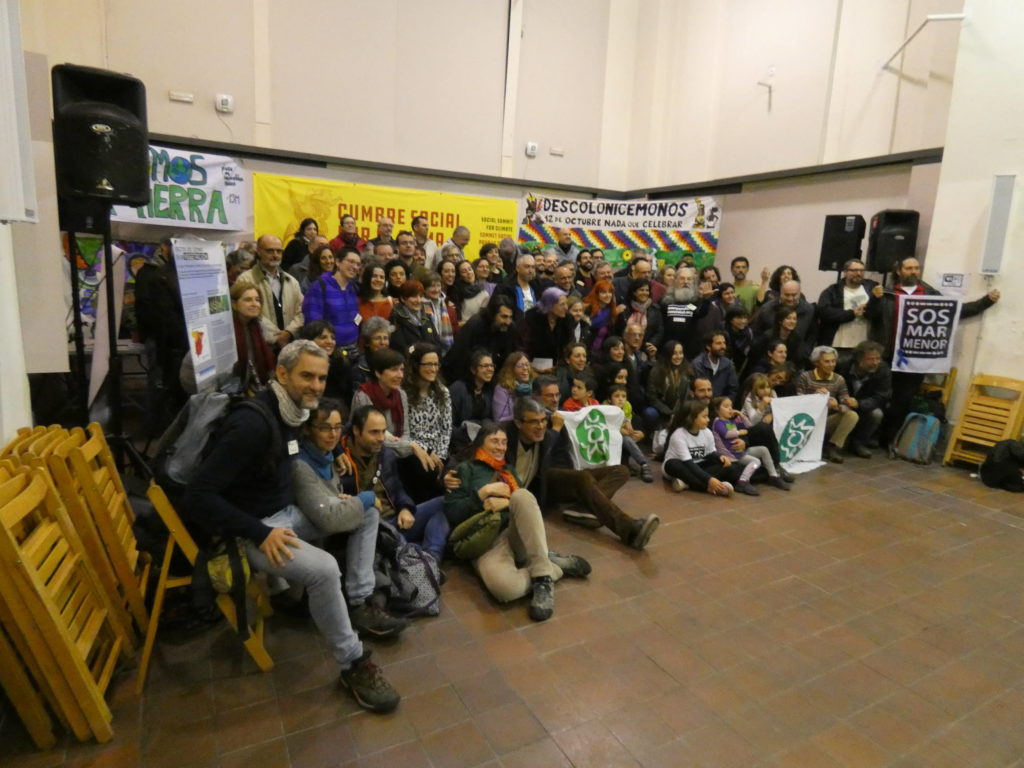
2. Don’t shy away from discontent.
The organisers asked a specific question that gave space for expressing discontent. The question was left open so that people could really choose anything that they didn’t enjoy about the event. Then, these results were categorised and presented in a clear, concise fashion, and displayed with full transparency in the final report. Mistakes are normal, hiding them doesn’t help anyone improve, so asking for feedback to see what landed well and what did not, is an essential part to growth and maturation.
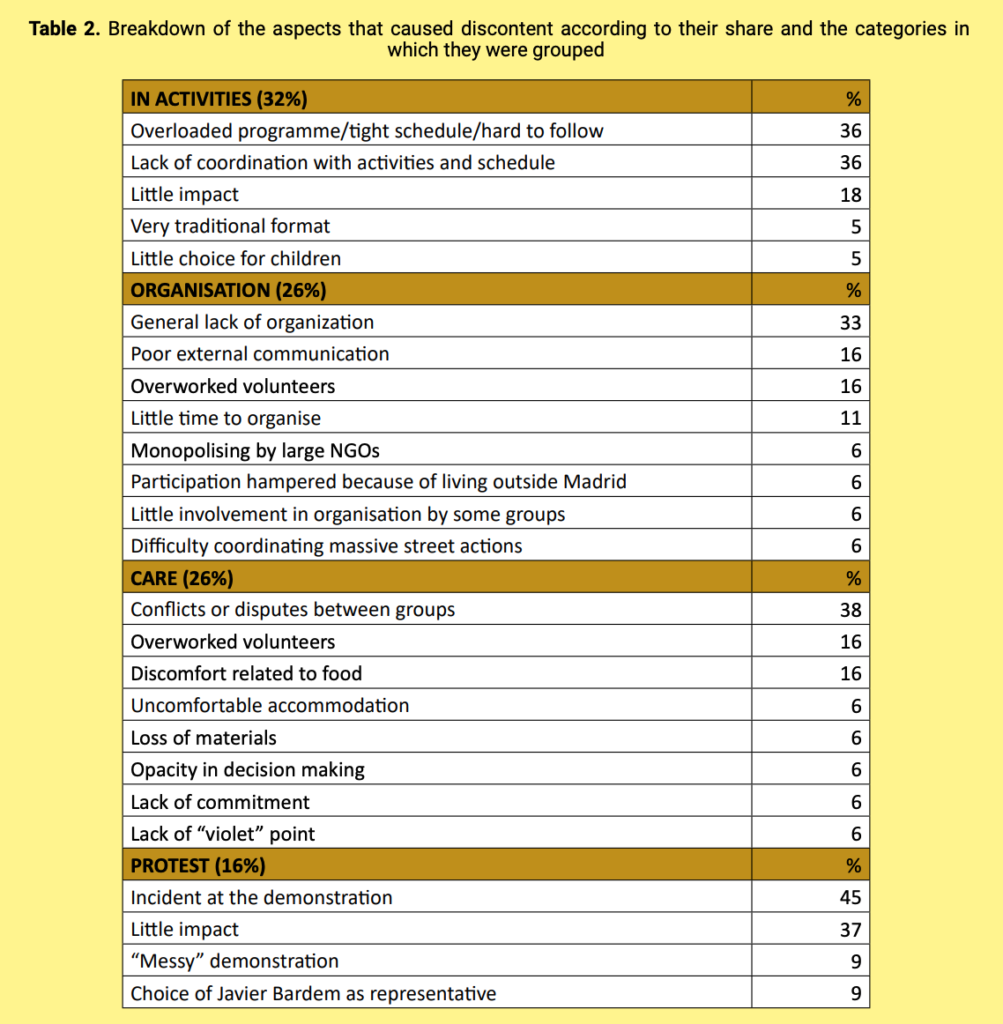
3. Collecting is not enough, the learning is in the analysis.
Simply dishing out surveys will not get you very far, unless you process them properly. What does properly mean? It means, processing the information so that you identify patterns and trends, you give possible accounts for why those trends arose, you offer ideas as to how to mitigate the undesirable patterns and how to bolster the good ones. It means some applied critical thinking. It means finding a simple, smart, pleasing way of presenting information, tables, graphs, infographics. This will help people extract lessons from the work and this will be the part that informs the next event, action, campaign they run.
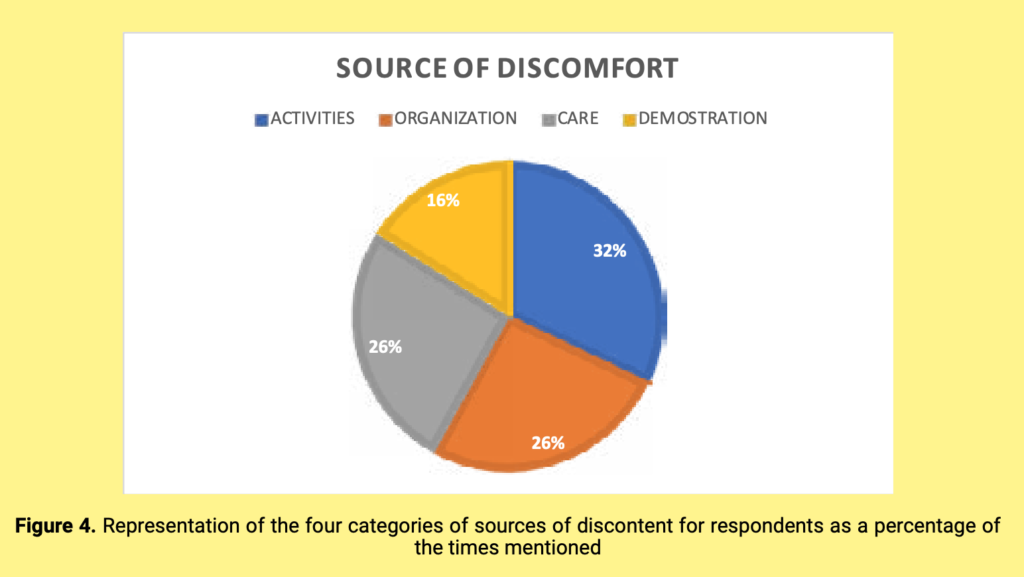
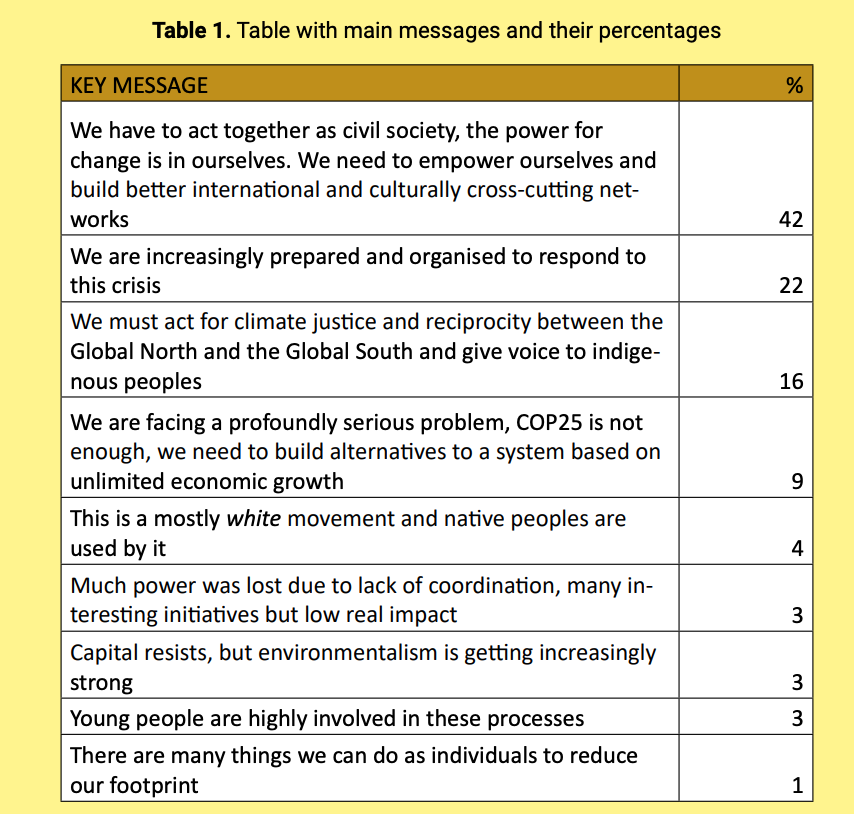
4. Make space for rich, qualitative feedback.
In Annex lll of the report (pages 33-36), there is a vivid account of some mishaps that took place during the event, involving the organisers, some uninformed staff, and the indigenous participants that were invited to participate in the programme. The chain of events that lead to the situation described could never be captured adequately by a survey, it requires us to understand the whole context as well as the many particularities that lead to the misunderstandings. However, reading the entire account lets you feel into the story, it allows you to see what could have been the red flags or tell-tale signs, and it gives you meaningful ideas on how to decolonise your future gatherings. The devil is in the detail. Good qualitative reporting is key.
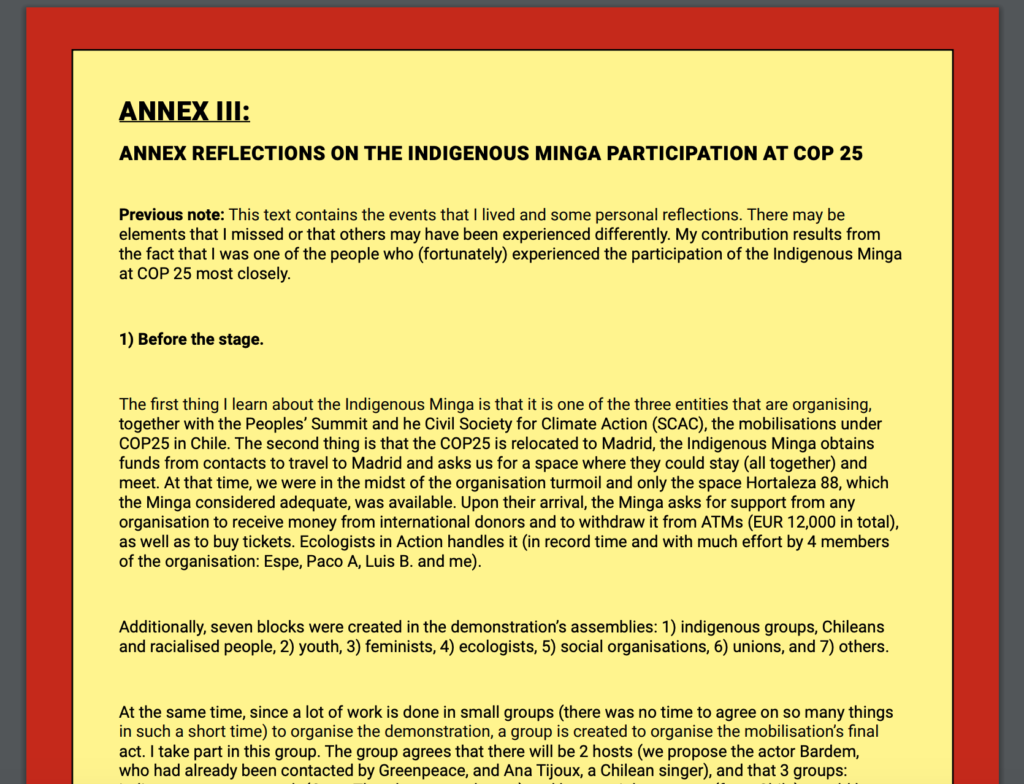
5. Action and evaluation are great friends.
A sentence in the report, listing the 3 main lessons learned, reads as follows: ‘Reflection and learning processes must be enhanced and therefore action and evaluation have to be given equal weight.’ It is hardly surprising, given the attention to detail and care with which this report was produced, that the organisers are keen to convey the point that evaluation is valuable, it is not a luxury, nor an add-on, it is essential to capture prevailing sentiments, strengths, setbacks and to create an improved road-map for the next time round. The subtitle of the report after all was “possible learnings for future events” so fuel up on that feedback then integrate, act, evaluate, analyse, share and repeat.
